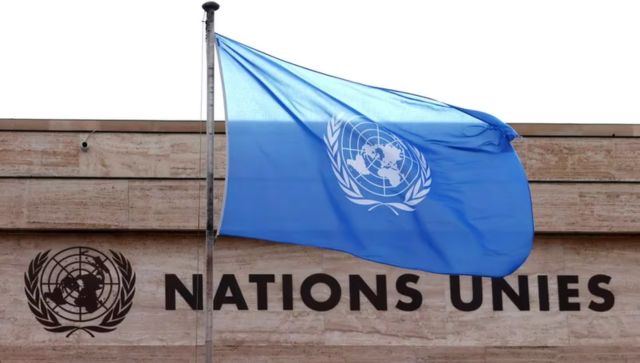United Nations experts called on U.S. authorities on Wednesday to cease the scheduled execution of a prisoner by asphyxiation using pure nitrogen, expressing concerns that the untested method might expose him to “cruel, inhuman, or degrading treatment or even torture.” Kenneth Smith, convicted for a murder-for-hire offence committed in 1988, is set to be executed in the U.S. state of Alabama on Jan. 25. The proposed method involves depriving him of oxygen by utilizing a face mask connected to a cylinder of nitrogen. The death penalty has been primarily carried out by lethal injection in recent years, but Alabama has said it will use nitrogen gas for Smith’s execution. “We are alarmed by the imminent execution… through the use of a novel and untested method: suffocation by nitrogen gas,” UN rights office spokeswoman Ravina Shamdasani told reporters in Geneva. The method, which she said had to her knowledge never been used anywhere in the world, “could amount to torture or other cruel, inhuman or degrading treatment or punishment, under international human rights law”, Shamdasani warned. The UN rights office, she said, “calls on Alabama state authorities to halt Smith’s execution… and to refrain from taking steps towards any other executions in this manner”. She voiced concern that the US states of Mississippi and Oklahoma had also recently approved the new execution method. While nitrogen gas has never been used to execute humans in the United States, it is sometimes used to kill animals. But Shamdasani pointed out that the American Veterinary Medical Association recommends giving even large animals a sedative when being euthanised in this manner, while Alabama’s protocol for execution by nitrogen asphyxiation makes no provision for the sedation of human beings prior to execution. Smith, 58, was convicted of a 1988 murder for hire, and eventually sentenced to death. He was subjected to a failed execution attempt in 2022, when execution officials were unable to set intravenous lines for the lethal injection drugs within the required timeframe. “They spent more than an hour trying and failed. It was a botched execution,” Shamdasani said. After that dire experience Smith was now facing “this very untested method, which could amount to torture”. She also highlighted that Smith had ongoing proceedings in a federal court against the looming execution, which have yet to be resolved. Beyond the execution method, Shamdasani reiterated the UN’s opposition to the death penalty in principle. “The death penalty is inconsistent with the fundamental right to life,” she said. “Rather than inventing new ways to implement capital punishment, we urge all states to put in place a moratorium on its use, as a step towards universal abolition.” A federal judge in Alabama is weighing whether to agree to Smith’s request to issue a temporary injunction halting the execution to allow his lawsuit challenging the constitutionality of the new protocol to proceed. Smith’s attorneys and the Alabama Department of Corrections declined to comment on Wednesday. Spokespeople for Alabama Governor Kay Ivey and the U.S. State Department did not respond to questions about the U.N. experts’ statement. Most U.S. executions are carried out using lethal doses of a barbiturate, but some states have struggled to obtain the drugs because of a European Union law banning pharmaceutical companies from selling drugs that can be used in executions to prisons. With inputs from agencies.
Kenneth Smith, convicted for a murder-for-hire committed in 1988, is scheduled to be executed in the U.S. state of Alabama on Jan. 25 using the method, which is intended to deprive him of oxygen by using a face mask connected to a cylinder of nitrogen.
Advertisement
End of Article


)

)
)
)
)
)
)
)
)



